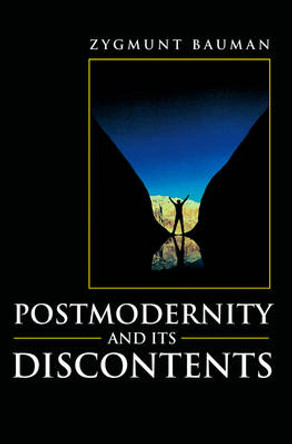Description
About the Author
David P. Barash is an evolutionary biologist and Professor Emeritus of Psychology at the University of Washington. He has written more than 280 peer-reviewed articles and forty books. Barash has penned op-eds in the Los Angeles Times, The New York Times, and The Chicago Tribune, as well as numerous pieces in The Chronicle of Higher Education, Nautilus, and aeon.
Reviews
In this erudite yet highly readable book, the author uncovers innumerable flaws inherent in the very notion of nuclear deterrence and reveals why it is doomed to fail. By exposing the futility of nuclear deterrence as a policy, he both amplified my feelings of terror and sparked in me a desire to persuade others of the policy's folly. * William B. Swann, American Scientist *
We're surrounded by threats, often to our detriment: threats of capital punishment, of hell, imagined threats leading to proliferation of guns and - worst of all - the threat embodied in nuclear deterrence. 'Must read' is a cliche, but this one really is! In accurate yet accessible detail, it lays out the deceptions and dangers of deterrence. It's a bright light of reason, terrific writing, and even a spirit of fun that will open your eyes, stimulate your mind, and maybe even save your life. * Daniel Ellsberg, author of The Doomsday Machine *
It's a rare author who can combine literary erudition and an easy fluency of style together with expert knowledge of psychology and evolutionary biology. David Barash adds to all this a far-seeing wisdom and a humane decency that shines through on every page. The concluding section on the senseless and dangerous futility of nuclear deterrence theory is an irrefutable tour de force which should be read by every politician and senior military officer. If only! * Richard Dawkins FRS, Emeritus Professor, University of Oxford, author of The Magic of Reality and Science in the Soul *
From bared fangs to nuclear deterrence, threat is ever-present in the lives of animals, including those animals called human beings. With scintillating prose infused with deep biological knowledge, David Barash takes us on a gripping journey into the role of risk and intimidation in the lives of living things. But Threats is not only a description of the darker side of animal life. It's a call to move beyond domination by violence and fear to secure a better, safer, and saner future for humanity. * David Livingstone Smith, award-winning author of On Inhumanity: Dehumanization and How to Resist It *
This brilliant book compares how animals and humans alike respond to dangers, ending with the existential threat of nuclear war. The arcane and deviant logic of deterrence that justifies and now threatens extermination literally took my breath away. If you love life and if you love this planet, you need to read this book and understand how primitive naivete and obeisance to the power of certain alpha males and their absurd testosterone-fueled aggressive ruthlessness has led too many people to accept these appalling dictates. I ended the book with the clear understanding that it is urgent for everyone--and women in particular--to step up and displace deviant threats with a commitment to nurturance and sanity. * Helen Caldicott, Founder and President Emeritus of Physicians for Social Responsibility (Nobel Peace Prize, 1985) *
Only the charmingly naive think that communication is just for exchanging information -- instead, it's as much about disinformation. David Barash explores the communication of threat as a deterrent -- both among animals and humans - and brilliantly shows the mythic nature of beliefs that the threat of execution can deter crime, or that of nuclear weapons can deter war. Ultimately, this superb, important book shows that our biggest threat is the self-serving perception of imaginary threats by the powerful. * Robert Sapolsky, John A. and Cynthia Fry Gunn Professor and Professor of Neurology and Neurosurgery, Stanford University *
This book is one of those so obviously needed that one wonders why no one before thought to write it. It is lucky for readers that David Barash is the one who did. Barash, the professor you wished you had in college, draws on his knowledge of crustaceans, Monarch butterflies, Kant, Shaw, Bentham, and even Jesus in this fascinating exegesis of the all-too-relevant subject of the threats posed by guns, right-wing populism, racism, and nuclear weapons. As Barash, one of America's most distinguished scientists, wisely observes, 'threats often end up making things worse, for threatener and threatened alike.' * Rick Shenkman, author of Political Animals: How Our Stone-Age Brain Gets in the Way of Smart Politics *
Loved the book. David Barash is an amazing researcher and writer; the timing of his new book could not be more propitious, and his expertise is exactly what we need. The section on deterrence is an especially gripping narrative that will keep you up at night, which is all the more reason for you to read it! * Michael Shermer, Publisher for Skeptic Magazine, Presidential Fellow at Chapman University, and author of The Moral Arc, Heavens on Earth, and Giving the Devil His Due *
A scientific romp that reveals how threats work and why they are often carried out even when that harms everyone. Fascinating examples, from the strategies of snapping shrimp to whether the death penalty deters crime, set the stage for a powerful argument that threats to use nuclear weapons are likely to result in their use and our annihilation. * Randolph M. Nesse, MD, author of Good Reasons for Bad Feelings: Insights from the Frontier of Evolutionary Psychiatry *
Book Information
ISBN 9780190055295
Author David P. Barash
Format Hardback
Page Count 248
Imprint Oxford University Press Inc
Publisher Oxford University Press Inc
Weight(grams) 454g
Dimensions(mm) 155mm * 239mm * 25mm





